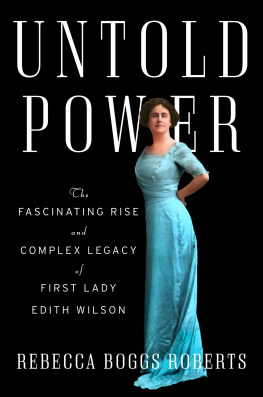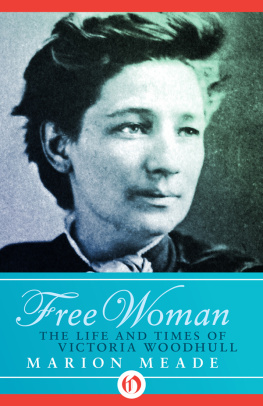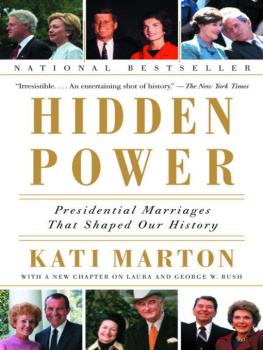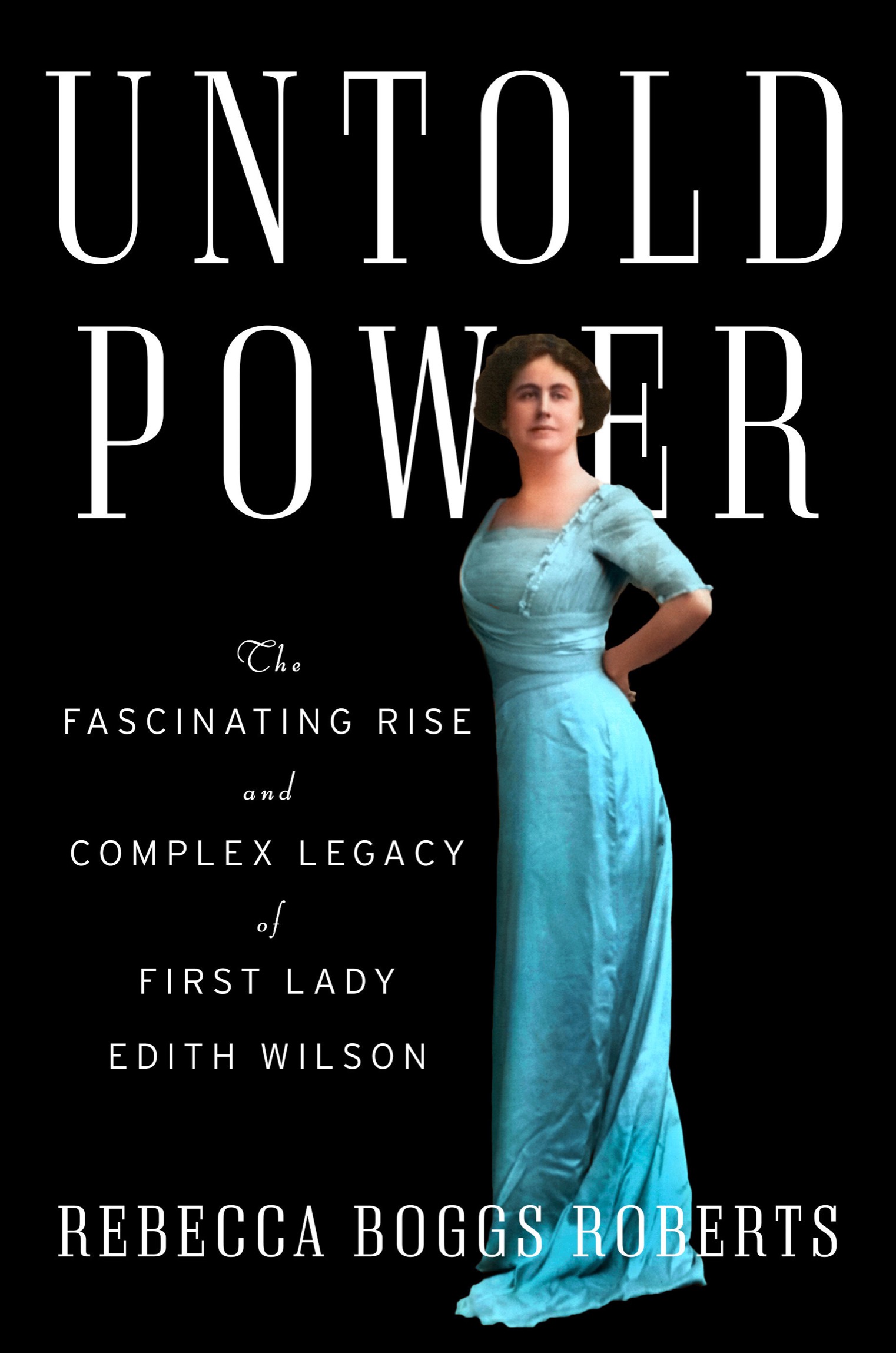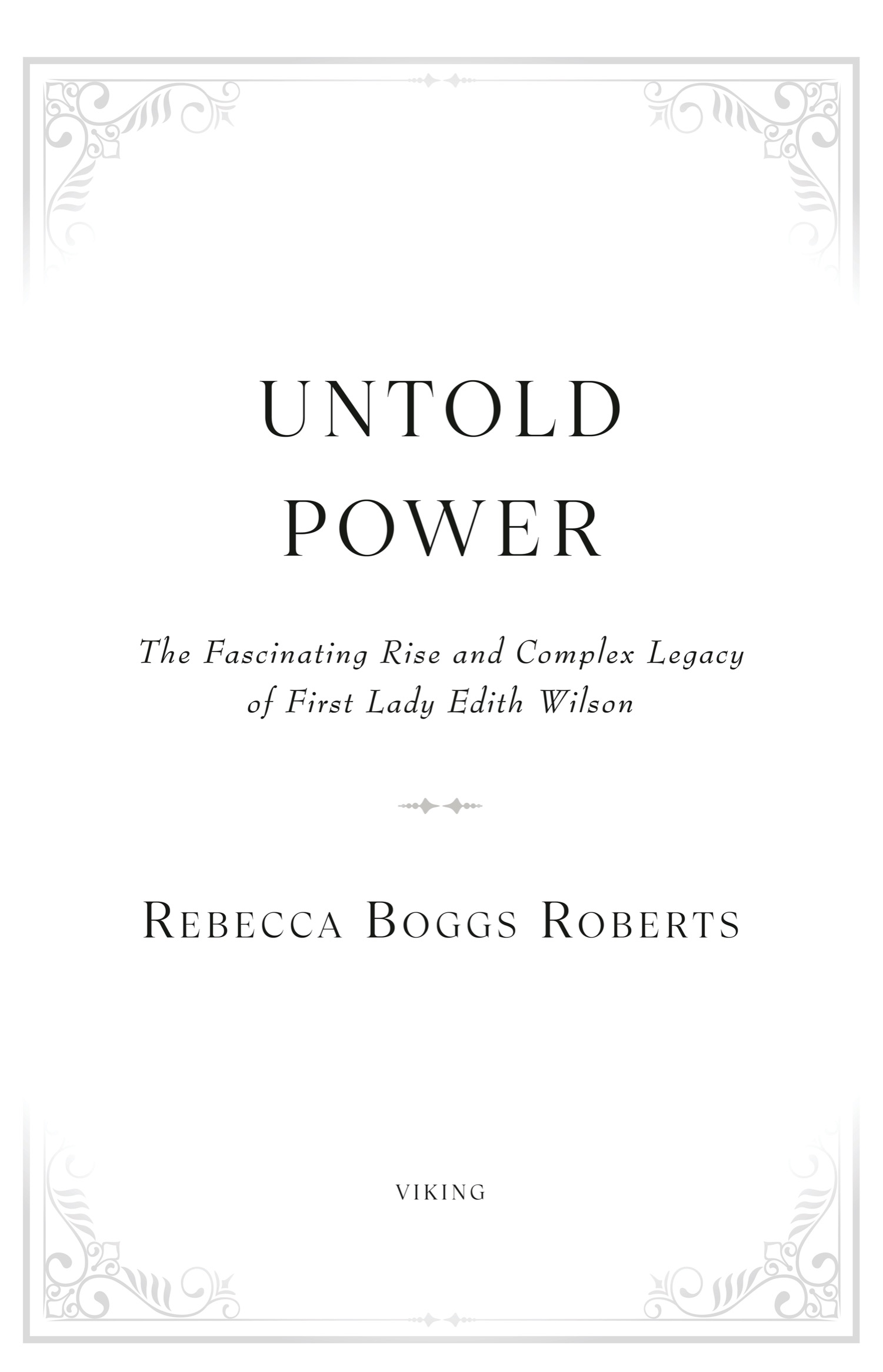VIKING
An imprint of Penguin Random House LLC
penguinrandomhouse.com
Copyright 2023 by Rebecca Boggs Roberts
Penguin Random House supports copyright. Copyright fuels creativity, encourages diverse voices, promotes free speech, and creates a vibrant culture. Thank you for buying an authorized edition of this book and for complying with copyright laws by not reproducing, scanning, or distributing any part of it in any form without permission. You are supporting writers and allowing Penguin Random House to continue to publish books for every reader.
Image credits appear on .
library of congress cataloging-in-publication data
Names: Roberts, Rebecca Boggs, author.
Title: Untold power : the fascinating rise and complex legacy of First Lady Edith Wilson / Rebecca Boggs Roberts.
Description: [New York, New York] : Viking, [2023] | Includes bibliographical references and index.
Identifiers: LCCN 2022040220 (print) | LCCN 2022040221 (ebook) | ISBN 9780593489994 (hardcover) | ISBN 9780593490006 (ebook)
Subjects: LCSH: Wilson, Edith Bolling Galt, 18721961. | Presidents spousesUnited StatesBiography. | Wilson, Woodrow, 18561924. | United StatesPolitics and government19131921.
Classification: LCC E767.3.W55 R63 2023 (print) | LCC E767.3.W55 (ebook) | DDC 973.91/3092 [B]dc23/eng/20220920
LC record available at https://lccn.loc.gov/2022040220
LC ebook record available at https://lccn.loc.gov/2022040221
Cover design: Alison Forner
Cover image: Alpha Stock / Alamy Stock Photo
Designed by Alexis Farabaugh, adapted for ebook by Cora Wigen
pid_prh_6.0_142781532_c0_r0
Behind the scenes at the White House, where peering eyes cannot see... there is a picture of heroic determination on the part of a worried woman to save her husbands life and fight to the bitter end the political calumny that is being avalanched upon the man who gave several years to public service and now lies a victim to nervous exhaustion.
Between the President and the outside world stands Mrs. Woodrow Wilson, as devoted and faithful a companion as ever nursed a sick man.
David Lawrence, President Wilsons Wife Is Heroine of White House Drama,
New York Evening Post, December 5, 1919
Or, more sinister still, must we look for the woman in the case? Has the female of the species already succeeded in putting a working Presidentess in the White House?
President Reasserts Authority, Bristol (TN) Herald Courier, February 20, 1920
(blind item from the Baltimore Sun)
Contents
Chapter One:
A Virginia Childhood 18721891
Chapter Two:
Woman of Washington 18911908
Chapter Three:
Merry Widow 19081914
Chapter Four:
Romanced by the President 1915
Chapter Five:
The First Lady in War 19161918
Chapter Six:
The First Lady in Peace 19181919
Chapter Seven:
The Stroke 1919
Chapter Eight:
Stewardship 19191921
_142781532_
Introduction
She hated the title First Lady, preferring to be known by the name on her calling cards: Mrs. Woodrow Wilson. But for some months at the end of 1919 and beginning of 1920, Edith Bolling Galt Wilson held the most political power of any First Lady in history.
But the times, of course, they keep achangin. So not only can a First Lady rarely rely on the precedents of her predecessors, but sometimes the publics expectations change in real time while she fills the role. Edith became First Lady when she married President Woodrow Wilson at the end of 1915, after the death of his first wife, Ellen. Unlike wives who rise up through the political ranks with their husbands, she didnt have the luxury of an on-ramp to national attention. She had to develop a public persona overnight. She chose the role of devoted second wife, living only for the health and success of her brilliant husband. She also wanted to be known as a gracious social presence, in contrast to the earnestly awkward first Mrs. Wilson. Edith was praised for her choice as soon as the engagement was announced. Mrs. Galt is regarded as a woman of rare beauty and charm, the Washington Evening Star wrote approvingly. Those who have known her best predicted today that she would be, as the first lady of the land, a popular hostess as well as a comfort and support to the President in his daily work. If she was hoping to reflect the 1915 feminine ideal, she chose her image perfectly.
But the years Edith served as First Lady, 19151921, saw profound changes in womens social roles. World War I required women to take on traditional male jobs and do them well. Suffrage activists pushed for recognition of womens rights, not only securing the vote but also challenging the notion that public life was the exclusive domain of men. And while Edith was never a suffragist, she did take on more public roles than any First Lady before her. She was the first to stand behind the president when he took the oath of office. She was the first to accompany her husband on business calls with cabinet secretaries. She was the first to travel abroad while her husband was in office. She was welcomed and celebrated by royalty in England and Italy in a way no leaders wife had been before. She was admired globally for her public visibility, which was all still very much in the service of her husband, never for her own agenda. When she accompanied her husband to Europe in 1918, one English reporter gushed, No queen could have had a more queenly manner, no great lady could be more gracious, no woman more utterly winning than President Wilsons wife. Edith kept that clipping in her scrapbook.
So when her husband collapsed from a stroke in October 1919, no one should have been surprised when Edith inserted herself between his sickroom and the public. She would protect him from anything that might make his condition worse, which included most of the duties of the presidency. From the day of their marriage she had cast herself as his devoted helpmate, there to make his life easier both in private and in public, and she would continue that role until her husband recovered. For a little while, that was enough. A sympathetic public worried over their fallen leader and supported his wife as gatekeeper. But what no one knew, what they could not know because Edith controlled the truth so closely, was just how sick Woodrow was, how many decisions he could not make, and how long his illness lasted. For weeks, he was almost totally incapacitated. For months after that, he was weak, easily confused, with slurred speech, limited vision, and a useless left arm. He tired early and was sometimes unable to control his emotions. He slept a lot. Meanwhile, it was Edith who met with cabinet secretaries, Edith who drafted public statements, Edith who made decisions about who could visit her husband, what issues to tackle, and which to ignore. As history has revealed just how thoroughly and how long Edith maintained control over the executive branch, Americans have professed themselves amazed that this unambitious woman, this wife who wanted nothing more than to serve her adored husband, had the confidence, brains, and cunning to pull off a conspiracy of this magnitude.
But anyone who pays the slightest bit of attention to Edith before her 1915 marriage shouldnt be surprised at all. Ediths obituary in 1961 described her as a most retiring woman to that date, she entered public life in that peculiar white-hot glare that surrounds the White House in a near-election year. This is typical of the accounts that completely fail to even attempt to understand Edith, painting her as a not-very-bright country mouse who magically became the nations most powerful woman overnight. Many adjectives can accurately describe Edith, but retiring is not one of them. She was fierce, clever, gracious, funny, loyal, and brave. Also petty, snobbish, jealous, and bigoted. She had a somewhat fickle regard for the truth. These are not character traits she developed in the white-hot glare of public attention. Her whole history reveals a woman of uncommon shrewdness, ingenuity, and a little ruthlessness. Were she a man, her story would be celebrated as an up-by-your-bootstraps American dream.

